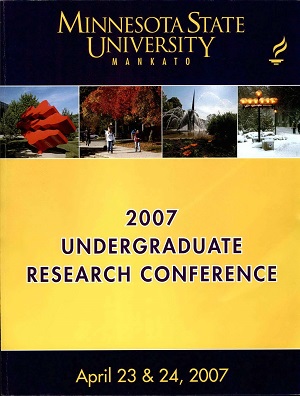Nineteenth Century Views on Theater and Drama in England
Location
CSU 202
Start Date
24-4-2007 10:45 AM
End Date
24-4-2007 12:30 PM
Student's Major
History
Student's College
Social and Behavioral Sciences
Mentor's Name
Larry Witherell
Mentor's Department
History
Mentor's College
Social and Behavioral Sciences
Description
With the passing of the Licensing Act of 1737 and until its repeal in 1969 the Lord Chamberlain's office has been legally able to censor any drama to be performed at established theatres in England. However, the 1737 Act left inconsistencies in the definition of censorship and the role of censor. People who were involved in theatre beUeved that the Lord Chamberlain's office gained too much power from the Act. In the nineteenth century, actors, playwrights and members of Parliament agitated for the reform of the 1737 Licensing Act, which led to the establishment of three special parliamentary committees in 1822-1823, 1866 and 1892 as well as to the passage of a second Theatres [Licensing] Act in 1843. This paper will focus on the emerging view of the modern theatre as revealed by the witnesses examined by the special parliamentary committees and in the parliamentary debates. This paper will use the parliamentary debates and parliamentary committee reports; contemporary newspapers, including The London Times; contemporary periodicals, including The Quarterly Review and Contemporary Review; memoirs, diaries and autobiographies of participants and politicians; and secondary historical scholarship including histories of drama and theatre.
Nineteenth Century Views on Theater and Drama in England
CSU 202
With the passing of the Licensing Act of 1737 and until its repeal in 1969 the Lord Chamberlain's office has been legally able to censor any drama to be performed at established theatres in England. However, the 1737 Act left inconsistencies in the definition of censorship and the role of censor. People who were involved in theatre beUeved that the Lord Chamberlain's office gained too much power from the Act. In the nineteenth century, actors, playwrights and members of Parliament agitated for the reform of the 1737 Licensing Act, which led to the establishment of three special parliamentary committees in 1822-1823, 1866 and 1892 as well as to the passage of a second Theatres [Licensing] Act in 1843. This paper will focus on the emerging view of the modern theatre as revealed by the witnesses examined by the special parliamentary committees and in the parliamentary debates. This paper will use the parliamentary debates and parliamentary committee reports; contemporary newspapers, including The London Times; contemporary periodicals, including The Quarterly Review and Contemporary Review; memoirs, diaries and autobiographies of participants and politicians; and secondary historical scholarship including histories of drama and theatre.
Recommended Citation
Unetic, Rebecca. "Nineteenth Century Views on Theater and Drama in England." Undergraduate Research Symposium, Mankato, MN, April 24, 2007.
https://cornerstone.lib.mnsu.edu/urs/2007/oral-session-12/4




